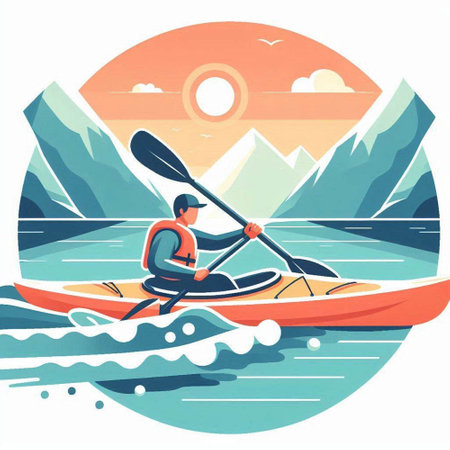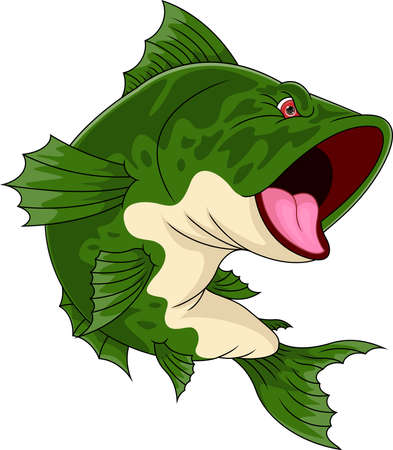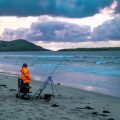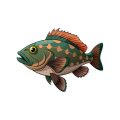Introduction to Welsh Fly Fishing Seasons
If you’re planning a fly fishing adventure in Wales, understanding the local fishing seasons is absolutely essential. The changing weather and diverse landscapes across Wales create distinct angling opportunities throughout the year. Each season brings its own charm and unique challenges, shaping not only the fish you’ll find but also how and where you should plan your lodge stay. From the lush spring hatches on rural rivers to autumn’s dramatic salmon runs, timing your visit can make all the difference. In this guide, we’ll delve into what makes Welsh fishing seasons so special and why booking your accommodation at the right time is key to an unforgettable experience.
Prime Fly Fishing Locations across Wales
Wales is a fly angler’s paradise, offering a rich tapestry of waters that cater to every preference and skill level. Whether you fancy casting for wild brown trout in secluded upland streams or seeking out sea trout and salmon along legendary rivers, there’s no shortage of remarkable locations to explore throughout the year. Let’s delve into some of the top rivers, lakes, and coastal hotspots—combining well-loved venues with a few hidden gems cherished by locals.
Top Rivers for Fly Fishing
| River | Region | Main Species | Best Season |
|---|---|---|---|
| River Usk | South Wales | Brown Trout, Salmon | March – October |
| River Wye | Mid & South East Wales | Salmon, Grayling, Trout | March – October (Trout), Winter (Grayling) |
| River Towy (Tywi) | Carmarthenshire | Sea Trout (“Sewin”), Salmon | June – September |
| River Dee | North East Wales | Grayling, Trout, Salmon | All Year (Grayling), Spring/Summer (Trout/Salmon) |
| Afon Mawddach | Gwynedd (North West) | Sea Trout, Brown Trout | June – August |
Lakes: Wild and Stocked Waters for All Abilities
| Lake/Llyn | Location | Main Species | Lodge Availability |
|---|---|---|---|
| Llyn Tegid (Bala Lake) | Snowdonia National Park | Pike, Perch, Brown Trout, Arctic Char | Bala & Surrounding Villages |
| Llyn Clywedog | Powys, Mid Wales | Rainbow & Brown Trout (Stocked) | Clywedog Lodges & Local B&Bs |
| Llyn Brenig | Denbighshire, North Wales | Browns & Rainbows (Stocked) | Brenig Visitor Centre Lodges |
Coastal Hotspots for Saltwater Fly Fishing
- Dovey Estuary (Aberdyfi): A prime spot for bass on the fly during summer months.
- Ceredigion Coast: Renowned for mackerel and pollock from May through September.
- Pembrokeshire Bays: Explore rocky marks near Tenby and St Davids for wrasse and bass action in warmer weather.
Lesser-Known Gems Worth Exploring
- Llyn y Fan Fach: Remote lake in Carmarthenshire famed for wild brown trout and mystical surroundings.
- Afon Irfon: A beautiful tributary of the Wye offering solitude and excellent grayling fishing deep into autumn.
Your Booking Tip:
The best Welsh lodges fill up fast during peak hatches and migratory runs. To enjoy these exceptional venues at their finest, plan your lodge stay at least six months ahead—especially if you’re after those elusive sea trout or salmon weeks. Speak directly with local guides or lodge hosts to time your visit perfectly for your chosen water and quarry.

3. Best Times of Year to Book Your Lodge Stay
Wales offers a rich tapestry of fly fishing opportunities throughout the year, but timing is everything when it comes to maximising your catch and ensuring a memorable stay. Understanding how seasonal patterns influence fish behaviour will help you plan both your trip and lodge booking for the optimum experience.
Understanding Seasonal Fish Activity
In Wales, trout and salmon are the main stars of the fly fishing calendar, with each species exhibiting distinct seasonal habits. Spring (March to May) heralds the start of the traditional trout season, with rising water temperatures encouraging more active feeding. This is an excellent period for dry fly enthusiasts as insect hatches become more frequent. Summer (June to August) sees longer daylight hours, but warmer water can make fish more selective, particularly during midday. Early mornings or late evenings are often most productive, and river levels may drop, concentrating fish in deeper pools.
Autumn and Salmon Runs
The arrival of autumn (September to October) is eagerly awaited by salmon anglers. As rains return, river levels rise, triggering salmon runs upstream for spawning. This period is highly sought-after and lodges near prime beats on rivers such as the Usk, Dee, or Towy are quickly snapped up. If targeting salmon is your goal, securing your accommodation well in advance—often six months or more—is strongly advised.
Winter Considerations
While winter (November to February) brings a slower pace to most fisheries due to colder waters and closed seasons for many wild species, some stillwaters remain open for stocked rainbow trout. This can be a quieter time on the rivers and at lodges, ideal for those seeking solitude and discounted rates.
When to Book Your Lodge
Lodge availability in Wales aligns closely with these seasonal patterns. For spring trout fishing or autumn salmon runs, it’s wise to book your preferred lodge as early as possible—ideally just after Christmas for spring stays or by late spring for autumn dates. Popular riverside accommodations can fill up quickly, especially during weekends and bank holidays. If your schedule is flexible, consider midweek bookings or shoulder seasons for better availability and potentially lower prices.
By aligning your plans with the natural rhythms of Welsh waterways and booking ahead according to species activity, you’ll secure not just a comfortable lodge but also a front-row seat to some of Britain’s finest fly fishing action.
Choosing the Right Lodge: Amenities and Local Etiquette
When planning a seasonal fly fishing trip in Wales, selecting the right lodge is as crucial as choosing your fishing spot. A well-chosen lodge not only provides comfort after a long day by the water but also enhances your overall Welsh experience. Here’s how to make an informed decision, blending practical amenities with cultural awareness for an authentic stay.
Essential Facilities for Anglers
Welsh fishing lodges vary widely in what they offer, so it’s wise to consider your personal needs and preferences. Below is a quick comparison of typical amenities you may encounter:
| Amenity | Description | Why It Matters |
|---|---|---|
| Rod Storage & Drying Rooms | Dedicated spaces for equipment care | Keeps gear safe and dry, especially in wet Welsh weather |
| Packed Lunches | Lodge-prepared food for anglers on the go | Saves time and ensures sustenance while out fishing all day |
| Guided Fishing Services | Local experts offering advice or tours | Boosts your catch chances and local knowledge |
| Proximity to Rivers/Lakes | Lodge location relative to top waters | Reduces travel time, maximising fishing hours |
| Tackle Shop On-site | Access to essential gear and flies | Covers forgotten items or local fly patterns recommended by guides |
| Wi-Fi & Mobile Signal | Connectivity options at the lodge | Important for staying connected, though some prefer ‘off-grid’ escapes |
Location: Stay Close to the Action
The closer your lodge is to renowned Welsh rivers like the River Usk or Teifi, the better your chances of early morning or late evening catches. Rural lodges often provide direct access or private beats, giving you more flexibility and less competition from other anglers. Always check if permits are included or need pre-booking separately—this can be a key detail when booking during peak seasons.
Cultural Tips: Embracing Welsh Hospitality and Etiquette
An authentic Welsh lodge experience is about more than just convenience. Here’s how you can show respect and get the most from your stay:
- Learn Some Welsh: Basic greetings like “Bore da” (Good morning) or “Diolch” (Thank you) are always appreciated.
- Mingle with Locals: Many lodges double as community hubs; enjoy a pint at the bar and chat with other guests or locals—it’s a great way to pick up fishing tips!
- Respect Quiet Hours: Rural lodges value peace; keep noise down in communal areas, especially late at night.
- Tidy Up: Leave shared spaces as you found them, whether it’s the breakfast table or tackle room—a point of pride in Welsh hospitality.
- Sustainable Practices: Support eco-friendly lodges that promote catch-and-release policies and respect for local wildlife habitats.
The Takeaway: Combine Comfort With Culture
Selecting a lodge for your Welsh fly fishing adventure goes beyond ticking boxes on amenities; it’s about immersing yourself in local traditions and making respectful choices. By balancing convenience with cultural sensitivity, you’ll enjoy a richer, more memorable stay—and perhaps even land that elusive trout or salmon Wales is famed for.
5. Essential Gear and Local Tackle Shop Advice
Choosing the right fly fishing gear for each season in Wales is key to a successful and enjoyable experience. Welsh rivers, lakes, and reservoirs can offer very different conditions depending on the time of year, so it’s wise to adapt your equipment accordingly.
Spring: Light Rods and Early Season Flies
In spring, as trout begin to rise, a 9-foot 4-5wt rod is ideal for most Welsh waters. Floating lines are generally best, paired with early-season flies such as March Browns and Olive Duns. Don’t forget breathable waders and a reliable waterproof jacket—the weather can be unpredictable.
Summer: Fine Leaders and Dry Flies
Summer calls for lighter presentations. Use a 3-4wt rod with fine leaders (up to 5X or 6X) to avoid spooking wary fish in clear water. Popular local flies include the Coch-y-Bonddu and Black Gnat. A wide-brimmed hat and polarised sunglasses are essential for spotting fish in strong sunlight.
Autumn: Streamers and Heavier Lines
As waters cool, fish become more aggressive. Step up to a 6wt rod and consider using sinking or intermediate lines for streamer fishing. Large wet flies like the Welsh Witch are favourites among locals. Layered clothing is recommended to stay comfortable during chilly mornings and evenings.
Winter: Specialist Tackle for Hardy Anglers
If you’re braving winter conditions, invest in insulated waders, thermal base layers, and fingerless gloves. Heavy nymphs and lures work well in deeper pools where trout shelter from the cold. A compact travel rod is useful if you’re exploring remote spots or moving between locations.
Top Local Brands and Shops
Wales boasts several reputable tackle shops that cater to all experience levels. Foxons of St Asaph is renowned for expert advice and stocking top brands like Snowbee and Greys—both popular amongst Welsh anglers. In South Wales, Pisces Country Sports near Cardiff is a go-to for rods, reels, flies, and up-to-date river reports. Many shops also offer guided trips or can recommend local ghillies if you want an insider’s edge.
Expert Advice from the Locals
The staff at these shops are usually passionate anglers themselves; don’t hesitate to ask about current hatches, river conditions, or their favourite local patterns. In Wales, it’s common to receive friendly tips on where to try your luck—and perhaps even a few secret spots if you’re lucky! By gearing up appropriately for the season and tapping into local expertise, you’ll be ready to make the most of your fly fishing lodge stay in beautiful Wales.
6. Booking Tips and Practical Travel Guidance
How to Secure Your Ideal Lodge
Booking your fly fishing lodge in Wales requires a bit of forward planning, especially during peak seasons like spring and summer. Popular beats along the River Usk or River Dee can fill up months in advance. To secure the best locations, it’s wise to book at least three to six months ahead. Many lodges offer flexible packages that include guided fishing days, equipment hire, and even local cuisine—so don’t hesitate to ask about bundle deals when making enquiries. When browsing, check if your chosen lodge is close to prime fishing spots and whether they offer private water access for an exclusive experience.
Navigating the Welsh Countryside
The beauty of Welsh fishing lies in its remote rivers, lakes, and valleys. However, rural roads can be narrow and winding, especially in Snowdonia or Brecon Beacons. Hiring a car is highly recommended for flexibility and ease of access. If you’re not familiar with UK road signs or single-track lanes, take your time and drive cautiously. Satnavs are helpful, but having an Ordnance Survey map as backup is a smart move—mobile signal isn’t always guaranteed in the hills! Don’t forget: local villages often have charming pubs and shops that make excellent pit stops on your travels.
Understanding Local Fishing Regulations
Wales boasts strict conservation policies to protect its native fish stocks. Before casting your line, ensure you have a valid Environment Agency rod licence (available online or at local post offices). In addition to this national requirement, most rivers and lakes also require specific day or season permits, which can usually be arranged through your lodge or local angling club. Take care to familiarise yourself with catch-and-release rules, seasonal closures (especially for salmon), and bait restrictions—Welsh authorities are vigilant about sustainable fishing practices.
Insider Tip:
If you’re unsure about any regulations or travel logistics, don’t hesitate to contact your lodge host directly—they’re usually locals with invaluable knowledge of both the fishing scene and nearby amenities.


